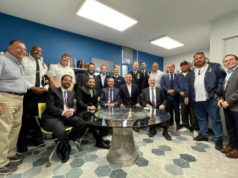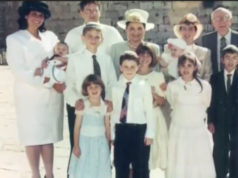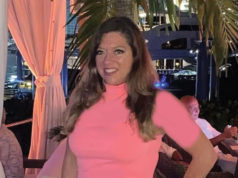 About four years ago, at the age of 33, Miri Horwich-Fried completed her doctorate work on diabetes. Seeking a new direction, she heard about a lab researching cancer immunology, which had opened at Bar-Ilan University and was looking for researchers. This subject always interested her. Her father had died from the illness.
About four years ago, at the age of 33, Miri Horwich-Fried completed her doctorate work on diabetes. Seeking a new direction, she heard about a lab researching cancer immunology, which had opened at Bar-Ilan University and was looking for researchers. This subject always interested her. Her father had died from the illness.
She got the job and felt that it was an area where she could make a breakthrough. She worked feverishly, trying to empathize with families who were facing death.
Three years after starting her research, she began to experience sharp stomach pains. When she went for tests, the doctors thought the pain was connected to the fact that she was postpartum. All the tests came out normal.
Finally, they decided to send her for an ultra-sound, where they discovered a lump in her liver, which they blamed on a problem with her veins and told her to return for a check-up in six months.
During this time, she continued to suffer from periodic attacks of stomach pains. They were like contractions, coming and going in waves, but when they came, they were unbearable.
Despite all this, she never dreamed that it could be a chronic illness. She returned for her six month appointment, at which time the doctors saw that the lump was growing and finally sent her for a CT, MRI and a biopsy. Only after all these tests did it finally emerge that she had cancer and it had spread from its source in her intestines.
The disease was already in an advanced stage. It could have been avoided, if she and the doctors had discovered the problem earlier.
I had a feeling that it was cancer, said Miri, yet, it was still a big shock. My husband and I wanted to believe that it was a mistake.
Reality proved otherwise. She was diagnosed with intestinal cancer, and for the second time, her family was forced to cope with the deadly disease. Her father had died of pancreatic cancer nine years earlier, at the age of 52.
The hardest part was telling my mother. I didnt want to tell her until the diagnosis was definite. In general, I didnt want to talk about it.
The transition from caregiver to care recipient was not an easy one. While doing research, she read lots of statistics. Suddenly, she understood that behind every statistic stood a person, a family, an entire world. Everything became much more tangible.
I didnt want pity. I viewed it simply as a period of time I had to get through, and thats it. I did not want people around me to know. I wanted, at least on the outside, to appear normal. There were days when I would break down and feel miserable.
I went to work. Sometimes I was present in the lab only physically. Emotionally, I was on a different planet and my concentration was spotty. I experienced nausea and vomiting and was kind of in a fogas if I was simultaneously there and not there. It was a horrible sense of helplessness and of loss of control over my own body, but I always maintained hope and high morale. I really believed that everything would turn out alright. Work gave me a reason to get up in the morning.
Miri did not want to ask for help. I like it when everything is under control, she said. The way I saw it, if I had to ask for help, it meant that I couldnt cope alone. After concerted persuasion by my husband, together with my children, we began going to Ezer Mizions Oranit (guest home for those with cancer)at first with great hesitation.
Today, the whole family considers Oranit their second home. On days when Miri did not feel well, her children would go there to play with other children like them. They thought it was a club, like any other. It was the first time they didnt feel different due to their mothers illnessbecause everyone there was in the same boat.
Dr. Bracha Zisser, who directs both Oranit and Ezer Mizions Bone Marrow Donor Registry, said, Slowly but surely, the family went through a process, opened up, and met other people in their situation. They met with our professional staff and learned to accept, to cope and to hope. Trained Ezer Mizion volunteers helped with everything from child care and homemaking to transportation and homework.
Last July, Miri underwent a successful operation to remove the cancerous part of her liver. Since then, she has been in remission, and everyone hopes that it will continue. Full recovery is measured in years, not in a few months. This is not the end of her story, but today she appreciates life more and tries to make the most of every minute.
My admiration for the Ezer Mizion staff grew by leaps and bounds, as I and my family benefited from their many programs. Their professionalism did not detract from the deep warmth emanating from each staff member. There was nothing superficial or intellectual about their compassion. Their caring enveloped me, and all who frequented the club, like a mothers hug.
Miri no longer considers people with cancer others. She knows they are real people with families, neighbors and friendspeople who are scared. Some are mothers with small children who cannot fathom leaving them to be brought up by other people.
Now I understand with the depth of my very being. I try to help Ezer Mizion in any way I can and encourage my friends to do the same, because now I know what its like to be on the other side. I go to work every day with one thought in mind: to help discover a cure for those othersbecause now I am one of them.
For more information visit www.ezermizion.org.



